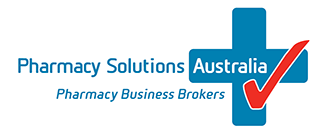If a buyer enters your pharmacy and asks whether you are interested in selling, what then?
- Do you agree to give the buyer your accounts?
- If you do, can you trust the buyer to respect your confidentiality?
- What is the relationship of the buyer to, say, your staff, or, perhaps, nearby competitors? Is the business worth more to that buyer than other potential buyers?
- What if your accounts don’t portray the business in it’s best light? Perhaps there are items in the accounts that relate to non-pharmacy related matters.Can you be sure the prospective buyer will have the intuition and commercial acumen to make appropriate adjustments?
- Critically, can you be sure the buyer has the financial resources to complete the sale? How can you check this?
- Has the buyer a track record of making offers and not following through?
- The buyer is back in the pharmacy and asking more questions, wanting more information, this time with 2 other people – are they partners, are they family? Your staff are asking whether you know them or should they call security!
The buyer makes an offer.
- Is the offer any good?
- Does it represent the market’s view of the pharmacy?
- Or, is it a reflection of the amount the buyer can afford to pay?
- Is the offer the result of the buyer’s accountant valuing the pharmacy? Does that accountant have experience in this field?
- Did the buyer receive input from their bank before making the offer?
- How do you feel about the offer?
- Is the price you had in mind a reflection of what you need to retire on? Or what you need in order to repay your debt?
- Is the price you had in mind a reflection of the sale price of a nearby pharmacy? If you are comparing your pharmacy to one sold recently, are you sure you know the specific details of that sale? For example, you may know what the pharmacy was sold for but is your informant telling the truth? Was the entire price paid at settlement or, as is often the case, an amount withheld and payable upon sales targets being achieved? Is your pharmacy like the pharmacy that was sold? Do you both have the same amount of nursing homes, deliveries, accounts, methadone patients, proximity to the railway station, proximity to doctors, split between front and back of shop sales, etc, etc? If there are differences, what adjustments to the price do you make?
- Do you have your accountant review your accounts and value the pharmacy?
- Should you incur the expense of doing so for a buyer whom you don’t know?
- What if your accountant values the business at a higher amount?
- Do you want to have to negotiate with the buyer?
- Do you have these skills?
- How can you get the buyer to increase their offer? Do you wait for someone else to enter the pharmacy and make a higher offer?
- If someone else does enter the pharmacy and makes a higher offer, perhaps you can get a little competition going between these 2 buyers with the aim of increasing the price. Still, it took a lot of work to get the first offer and you don’t want to go through the process again.
- Finally, you still don’t know if there is a relationship between the 2 buyers that have made offers, whether they can complete and whether it represents the top market price.
Did you hear about the buyer that walked into the pharmacy and made an offer? The vendor told the buyer to talk to Pharmacy Solutions.
Mark Sykes B.A.’ M.App. Fin.
Consultant
Pharmacy Solutions NSW



